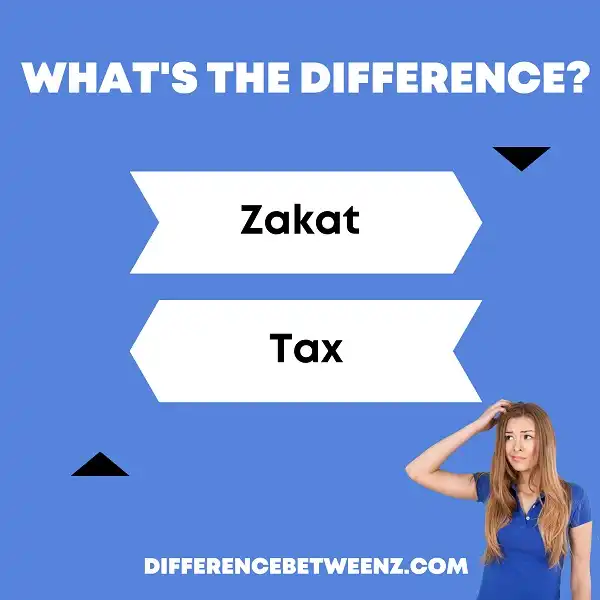The Islamic term zakat refers to the giving of a fixed percentage of one’s wealth to charity, while tax is a compulsory payment to the government made by citizens and companies. Both zakat and tax play an important role in society, but there are some key differences between them. In this blog post, we will explore those differences and discuss why they matter. Stay tuned!
What is Zakat?
Zakat is an important Islamic concept that requires Muslims to give a percentage of their income to charitable causes. The word Zakat means “purification” and it is seen as a way to purify one’s wealth. Zakat is one of the Five Pillars of Islam, and it is obligatory for all Muslims who are able to do so. The amount of Zakat that must be given is 2.5% of a Muslim’s total savings and assets, excluding any debts. Zakat can be given to any worthy cause, but it is often given to help the poor and needy.
Zakat is an important act of charity, but it is also seen as a way to purify one’s heart and intentions. By giving Zakat, Muslims remind themselves that their wealth is not their own, but belongs to God. Zakat is an essential part of Islamic belief and practice, and it helps to create a more just and compassionate society.
What is Tax?
Tax is a compulsory financial charge or some other type of levy imposed upon a taxpayer (an individual or legal entity) by a governmental organization in order to fund various public expenditures. A failure to pay, along with evasion of or resistance to taxation, is punishable by law. Taxes consist of direct or indirect taxes and may be paid in money or as its labor equivalent.
The concept of taxation has been around since the early days of organized society. And as societies grew more complex, different types of taxes were introduced in order to fund different public expenditures. Today, taxes are still an essential part of every society and play a vital role in funding public services and infrastructure.
Difference between Zakat and Tax
Zakat is an Islamic concept of almsgiving or charity. Zakat is a religious obligation for Muslims, who are required to give 2.5% of their disposable income to the poor and needy. Tax, on the other hand, is a government-imposed levy on individuals and businesses. The money collected through taxes is used to fund public expenditures such as infrastructure, defense, and education. There are significant differences between zakat and tax. Zakat is a voluntary act of charity, while tax is compulsory.
Zakat is donated to the poor and needy, while tax goes into the government’s coffers. Zakat is a religious obligation, while tax is secular. Finally, zakat is paid by Muslims, while tax is paid by everyone. Despite these differences, both zakat and tax play an important role in society. Zakat helps to reduce poverty and inequality, while tax funds essential public services.
Conclusion
The distinctions between Zakat and tax are important to understand in order to comply with religious law and government regulations.


